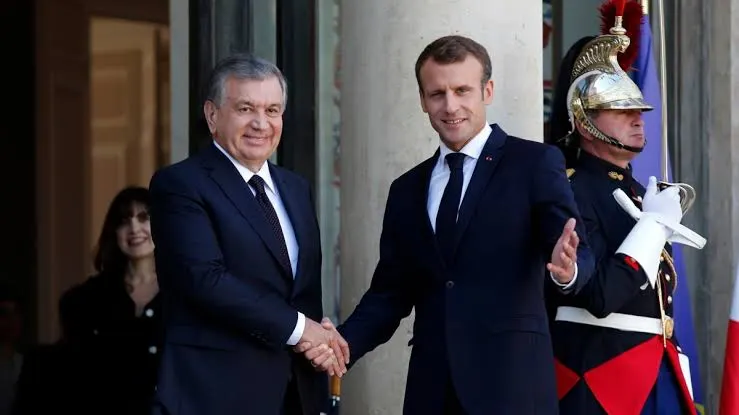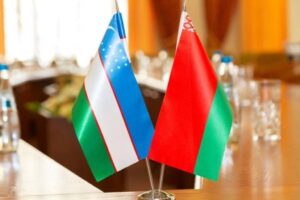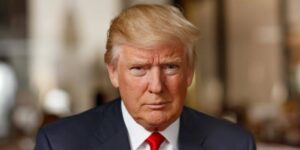Strengthening partnership in Central Asia and prospects for cooperation between France and the region

Strengthening partnership in Central Asia
With the election of Shavkat Mirziyoyev as head of state in 2016, the internal and foreign policy of Uzbekistan have changed drastically. The leader of the country has begun the implementation of a huge range of large-scale reforms aimed at modernizing all spheres of society and the state, which should ensure the sustainable development of the country in the long term.
Strategy of Actions
This is reflected in the Strategy of Actions on priority areas of the country’s development until 2021 and the Development Strategy until 2026, the priority of which is the principle “From the Strategy of Actions to the Strategy of Development”. The result of conceptual programs and cardinal reforms were the prerequisites for the construction of a New Uzbekistan and the Third Renaissance.
The New Uzbekistan is a dynamically developing state, the main goal of which is to ensure a free, well–ordered and prosperous life of our multinational people. It is a State developing in strict accordance with universally recognized norms in the field of democracy, human rights and freedoms, based on the principles of equal and mutually beneficial cooperation with the international community. The main principles of all transformations are “Not the people should serve state bodies, but state bodies should serve the people” and “The honor and dignity of a person should henceforth be in the first place in all spheres.” During his first speech at the meeting of the United Nations General Assembly in September 2017, the president of Uzbekistan Shavkat Mirziyoyev clearly stated from the rostrum that Uzbekistan defines the Central Asian region as the main priority of its foreign policy. And this is a conscious choice. Then the Leader of the State stressed that: “Being in the heart of Central Asia, Uzbekistan is directly interested in making the region a zone of stability, sustainable development and good neighborliness. A peaceful, economically prosperous Central Asia is our most important goal and key task.”
Today we can say that in the region, where more than 70 million people live, thanks to the efforts of Uzbekistan, a completely new political atmosphere has formed, which has allowed us to transform the course of development of our region in a creative way. All this was the result of restoring constructive dialogue, strengthening good neighborliness and building mutually beneficial partnership between the Central Asian States, and the ongoing regional changes have acquired a systemic irreversible character.
The President of Uzbekistan is determined to consolidate efforts to increase regional cooperation in Central Asia, as well as to deepen bilateral relations with neighboring countries: Kazakhstan, Kyrgyzstan, Tajikistan and Turkmenistan, with which strategic partnership relations have been established, and with a number raised to the level of alliance. This has never happened in history. By joint efforts, we managed to solve many issues that previously overshadowed and hindered the development of cooperation.
Thus, thanks to the open and pragmatic policy of Uzbekistan, borders were opened and favorable conditions for mutual trips of citizens were created, new air, road and rail routes were restored and launched, water use issues are being successfully resolved. At the initiative of the Leader of Uzbekistan, a mechanism of Consultative meetings of the heads of Central Asian states has been launched since 2018, within the framework of which the most pressing issues of regional cooperation are discussed and mutually acceptable solutions are developed based on respect and consideration of each other’s interests.
Such dynamics of development laid the foundation for the transformation of the Central Asian region into a single trade, investment, transport and communication platform, promotes the implementation of industrial cooperation projects in various sectors of the economy, starting from the automotive industry and ending with agriculture, the implementation of transport and transit integration, the expansion of contacts between the regions of our states, the deepening of cultural and humanitarian ties. Stable Central Asia is becoming one of the important centers of economic growth.
According to a number of experts, the total GDP of the countries of the region has grown by 25 percent over the past four years and exceeded $300 billion. Uzbekistan’s trade turnover with the countries of the region has increased tenfold and exceeded $6.5 billion. Cooperative ties are being strengthened, joint investment companies and other financial instruments for the implementation of major projects have been created.
In turn, Uzbek businesses began to actively invest in neighboring countries, which contributes to the development of economies and the creation of new jobs. For the first time in history, Uzbekistan, Kyrgyzstan and Tajikistan are launching joint projects in the field of energy – the construction of large hydropower stations on the Naryn and Zarafshan rivers. The consequence of such changes has also been the consistent development by countries of agreed positions on intra-regional issues and close coordination on international and regional platforms.
The unified position of the Central Asian states began to be voiced within the framework of the UN, CIS, SCO, OIC, ECO, OTG and other structures. Uzbekistan’s foreign policy is also aimed at strengthening the interconnectedness of the Central Asian region with other important partners and regions.
This was exactly what the high-level international conference «Central and South Asia: Regional Interconnectedness» organized on the initiative of the Leader of our state in July 2021 in Tashkent served. Challenges and opportunities». The interest of the international community in the Central Asian region as a whole has significantly increased, as evidenced by the effective, in our opinion, international formats “5+1”, with the participation of the United States, South Korea, Japan, India, China, Russia, the European Union and the Cooperation Council of the Arab States of the Persian Gulf. And the region itself is also interested in multilateral platforms through which the Central Asian countries seek to build a constructive dialogue with the world’s leading actors on equal terms.
It is important that the process of rapprochement is not directed against anyone’s interests and aims to deepen regional cooperation.
As President Shavkat Mirziyoyev noted at the recently held first Central Asia–European Union summit, “there are still unresolved issues in the region. But we are convinced that our strong political will and common creative spirit will contribute to the further rapprochement of fraternal countries and peoples of the region.” Our country is also interested in establishing a constructive bilateral dialogue with the EU member States, of which France is one of the locomotives. Despite the fact that diplomatic ties between our states were established on March 1, 1992, however, Uzbek-French relations have received their true development since the second half of 2016, when a vector for open dialogue in all spheres was laid. At the invitation of President Emmanuel Macron, the President of the Republic of Uzbekistan paid an official visit to France in October 2018. It was the first European country to be visited by the Leader of Uzbekistan.
The last conversation between the two leaders took place in August last year on the occasion of the 30th anniversary of the independence of the Republic of Uzbekistan.
Relations at the level of parliaments and the public are actively developing. In the Senate and Legislative Chamber (lower house) The Oliy Majlis (Parliament) of Uzbekistan has established friendship groups with the Senate and the National Assembly of France. Today, France is an important partner of Uzbekistan in the economic, investment, financial and technical spheres.
There are successful examples of partnership in the field of energy, automotive, geological exploration, production of building materials, tourism and others. Mutual trade is growing dynamically. In January-September of this year, its volume exceeded $ 230 million, including the export of Uzbek products, which increased 9 times and reached almost 70 million. Although these figures are unimpressive, however, if you take a look into the past, this is significant progress.
The cultural and humanitarian sphere also plays an important role in the development of Uzbek-French relations.
The Association for the Study of the Art and History of the Temurids, the Association “Avicenna-France” operate in Paris. Representatives of France regularly take part in the international festival “Shark Taronalari” in Samarkand. In Uzbekistan, over 280 thousand students in 1,260 schools, colleges and lyceums, as well as in 11 universities, are studying French with great enthusiasm.
Next week, one of the largest and most popular museums in the world, the Louvre, is scheduled to open a unique exhibition “The Splendor of Central Asia. On the caravan routes of Uzbekistan”, which will include items related to the ancient history of Uzbekistan. In addition, an exhibition “The Road to Samarkand, the colors and splendor of Uzbekistan” is planned at the Institute of the Arab World.
Despite these achievements, the expert circles of Uzbekistan believe that there is a huge potential for building up both bilateral Uzbek-French cooperation and partnership between France and the Central Asian region as a whole. In this regard, it is advisable to develop relations between the parties in the following areas: “green” development, widespread introduction of innovations, energy-efficient and resource-saving technologies, digitalization of economic sectors, development of “smart” agriculture and cities.
The following points of interaction are also very promising: – ensuring compliance of Central Asian industrial goods with high European standards and technical regulations; – creation of efficient transport and logistics corridors for optimal access to each other’s markets, taking into account current restrictions, primarily through the development of the Trans-Caspian multimodal route; – conducting joint targeted events and promotions, with the aim of recognition and demand for goods from Central Asian countries by European consumers; – expansion of educational, scientific, tourist and cultural exchanges.
Thus, the New Uzbekistan today has become a kind of gateway to the whole of Central Asia and provides partners with a unique opportunity to successfully interact with the entire region, using the growing economic and humanitarian potential.
I am sure that during the upcoming official visit of the President of the Republic of Uzbekistan Shavkat Mirziyoyev to the French Republic, a detailed exchange of views on the current state and the most promising areas of Uzbek-French cooperation will take place, and concrete agreements on a wide range of issues will be reached, which will bring mutually beneficial partnership to a new level.


